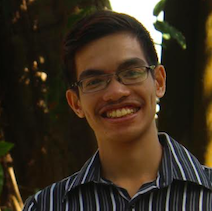

Laws, and by extension lawmaking, requires information. Only when pertinent information is integrated with public needs can there be a proper law. Unwittingly, a vast majority of the laws in the Philippines either lack pertinent information due to external and internal communication barriers or does not extend fully to address public needs.
As a researcher myself, our daily activities center towards the term optimization. Was the desired end product achieved? Were there steps that needed improving? As the information gatherers of our society, it is our role to provide the public a clear picture of what it is that we have elucidated.
If we tell people that a man was the probable father of a child because we used 23 different short tandem repeats in our DNA to identify putative matches, the general public would not understand the importance of our work. But if we show them visual bands that match between father and child, then the story becomes easier to follow.
Lawmakers are not scientists. The greater proportion of our leaders are not even familiar with Taq polymerase and why it has become so commonplace in science. Due to this, lawmakers have to accept that it is their task to gather information from those who have an entire lifetime’s worth of information regarding certain fields of science – our experts. Failure to do this will only lead to social pandemonium, as shown during the Supreme Court’s ban of Bt eggplant and GM products in 2015, which was then repealed in 2016. (READ: The SC kills Bt talong, and takes down Philippine science as well)
Information sources – i.e. researchers, scientists, academicians – should not only be given plaques or national scientist titles, but must be heard and given a privileged position during lawmaking. Titles are not what drives our most passionate of scientists; it is dedication to our country. It is to my opinion that there should be a seat reserved for the academe in our legislative house. No, not a party list, and not a consultancy, but an actual seat reserved for experts.
When we hear Filipino leaders mock the scientific community for asking for a bigger budget, they unwittingly cut off one of the critical factors in lawmaking, which is better quality information. Project NOAH, PHILVOCS, DA, DOH Dengvaxia – the signs are all there. The societal stigma resulting from this confusion has not aided the general public in being better informed. Instead it has become a Manichean system of being pro or against a political regime. (READ: 5 things to make PH a better place for scientists)
The political system in the Philippines, and in the entire world for that matter, is always in constant flux because of differing political will between leaders. However, the scientific system has always been steadfast – it is self-correcting, it is peer-reviewed, and it is empirical in nature.
Science does not favor one political regime over the other. It does, however, equip any political regime with the capacity to target each societal problem objectively. – Rappler.com
Mr. Wilson F. Aala, Jr. obtained his bachelor’s degree in Biology and master’s degree in Genetics at the University of the Philippines – Los Baños. He became part of the Saba Mutagenomics Program, Coconut Genomics Program (Project IV), Rice Salinity Group, and International Network for the Genetic Evaluation of Rice at the International Rice Research Institute. He is currently a University Researcher I at the Philippine Genome Center – Mindanao Satellite Facility in Davao City, Mindanao. He specializes in plant biotechnology, genetics, and bioinformatics.